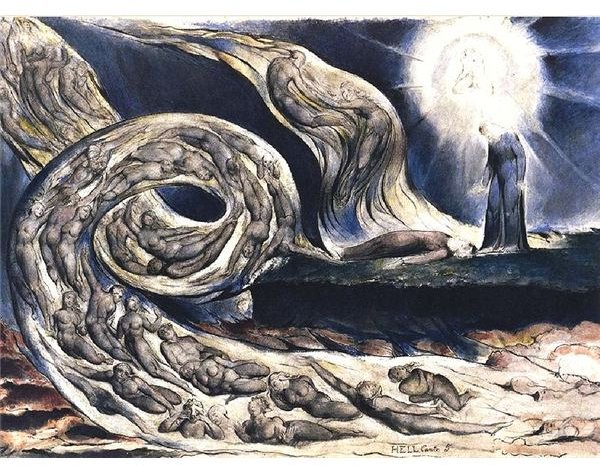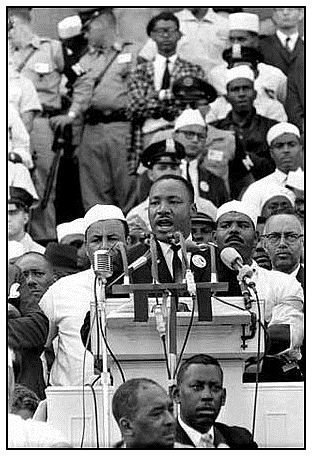Study Guide for "I Have a Dream Speech" by Martin Luther King: Metaphors & Figurative Language
Historical Context
There are numerous websites dedicated to Martin Luther King Jr. My intention is not to provide a detailed historical analysis of King’s importance or the importance of his most famous speech. The purpose of this study guide is to provide an analysis of metaphors in his speech. That being said, a basic understanding of the speech’s historical significance is necessary.
- King delivered the speech at the Lincoln Memorial in Washington D.C. on August 28, 1963.
- The speech culminated a civil rights march on Washington in an attempt to secure rights for African-Americans.
- The march, King’s speech, and other boycotts and protests eventually led to the Civil Rights Act of 1964, which outlawed major aspects of discrimination.
Figurative Language
The historical significance of King’s speech overshadows its brilliant use of figurative language. Let’s analyze the following metaphors:
Quote: “This momentous decree came as a great beacon light of hope to millions of Negro slaves who had been seared in the flames of withering injustice. It came as a joyous daybreak to end the long night of their captivity.”
Metaphor: The Emancipation Proclamation is compared to a “great beacon light of hope.” The injustice of slavery is compared to searing flames. The Emancipation Proclamation is compared to a joyous daybreak after a long night.
Analysis: King begins with an allusion to Abraham Lincoln and the Emancipation Proclamation. The beginning of the speech is hopeful but offers a hint that not all is right. His allusions and subsequent metaphors hint that momentus change is around the corner and that the hopes of the Emancipation Proclamation have not been fulfilled.
Segregation
Quote: “One hundred years later, the life of the Negro is still sadly crippled by the manacles of segregation and the chains of discrimination. One hundred years later, the Negro lives on a lonely island of poverty in the midst of a vast ocean of material prosperity. One hundred years later, the Negro is still languished in the corners of American society and finds himself an exile in his own land.”
Metaphor: Segregation is compared to manacles; discrimination is compared to chains. The economic condition of the Negro in relation to the rest of America is compared to “a lonely island of poverty in the midst of a vast ocean of material prosperity.” The Negro is compared to a man in exile.
Analysis: After the hopeful allusion to the Emancipation Proclamation, King uses anaphora–the deliberate repetition of a word or a phrase at the beginning of successive clauses–to remind his listeners that “one hundred years later” the descendants of freed slaves are still struggling to achieve basic rights.
Unalienable Rights
Quote: “In a sense we’ve come to our nation’s capital to cash a check. When the architects of our republic wrote the magnificent words of the Constitution and the Declaration of Independence, they were signing a promissory note to which every American was to fall heir. This note was a promise that all men, yes, black men as well as white men, would be guaranteed the “unalienable Rights” of “Life, Liberty and the pursuit of Happiness.” It is obvious today that America has defaulted on this promissory note, insofar as her citizens of color are concerned. Instead of honoring this sacred obligation, America has given the Negro people a bad check, a check which has come back marked “insufficient funds.””
Metaphor: The march on Washington is compared to going to the bank to cash a check. The Constitution and Declaration of Independence is compared to a promissory note on which America has defaulted.
Analysis: King was a reverand, familiar with biblical concepts of love and justice. He was also a realist and understood that equality will happen for the African-American when African-Americans have access to money. This is his second metaphor involving money–this is not a coincidence. King acknowledged the brilliance of the nation’s founding documents and calls for their immediate application.
The Dream
Quote: “I still have a dream. It is a dream deeply rooted in the American dream.”
Metaphor: The American dream is indirectly compared to rich soil, a soil in which King has planted his dream of racial equality.
Analysis: King reiterates that his dream is no different than the dream of the Founding Fathers. His dream receives its legitimacy from the ideals set forth in the Declaration of Independence and the United States Constitution to which King refers earlier in the speech.
Quote: “This is no time to engage in the luxury of cooling off or to take the tranquilizing drug of gradualism. Now is the time to make real the promises of democracy. Now is the time to rise from the dark and desolate valley of segregation to the sunlit path of racial justice. Now is the time to lift our nation from the quicksands of racial injustice to the solid rock of brotherhood. Now is the time to make justice a reality for all of God’s children.”
Metaphor: Inaction is compared to a luxury that civil rights workers must not purchase. Gradual change is compared to tranquilizers. Segregation is compared to a desolate valley. Racial Justice is compared to a sunlit path. Racial injustice is compared to quicksand. Brotherhood is compared to solid rock.
Analysis: King understood human nature. He understood the natural human tendency to relax once things are going well. He urges his followers not to relax. The fight is not over (anyone who’s played high school sports has probably heard something similar from a coach). The situation is urgent and to delay is death.

Quote: “And those who hope that the Negro needed to blow off steam and will now be content will have a rude awakening if the nation returns to business as usual. And there will be neither rest nor tranquility in America until the Negro is granted his citizenship rights. The whirlwinds of revolt will continue to shake the foundations of our nation until the bright day of justice emerges.”
Metaphor: The potential revolt caused by the nation returning to “business as usual” is compared to a whirlwind. The nation’s founding principals–what King relies on in his speech for political legitimacy–is compared to a foundation. Justice emerging is compared to a bright day.
Analysis: King once again references money in his “business as usual” remark. He threatens those in power that a revolution is coming–albeit a peaceful one–if political leaders do not provide the justices guaranteed in the nation’s founding documents.
